
Magaly Obando pauses briefly before speaking. She explains that she is at a loss for words and, at the same time, there is too much she would like to say.
Outside of the house, a dark evening threatens to bring another downpour in San Antonio of Nicoya. Magaly adjusts her position in her wheelchair and decides where to begin her reply.
“When this president ran for office, I was one of the ones who supported him, but not this time, because unfortunately, not all of us with disabilities were born in a golden cradle,” criticizes the 35-year-old Nicoyan who is a substitute municipal council member in the Municipality of Nicoya.
People with disabilities in Nicoya participated in a photography workshop and these are the results:
She refers to the bill “Evaluation of tax incentives in the framework of a correct application of public resources to contribute to the finances of the Costa Rican State,” file No. 23.763. The proposal promoted by the government looks to tax several products and services.
One of the most controversial points is that it seeks to eliminate the tax exemption for wheelchairs, walkers, canes, hearing aids, glasses and other support products needed by people with disabilities.
President Rodrigo Chaves’ explanation for eliminating the exemption and taxing these devices with a 2% tax is that the vast majority of these items are provided by the Costa Rican Social Security Fund (CCSS) and “what is not bought through the Fund is paid for by the richest one-fifth [of the population],” he said on May 24 at the weekly press conference.
Magaly and other people from Guanacaste who need these devices consider this measure as one more barrier for people in the province to live with equality.
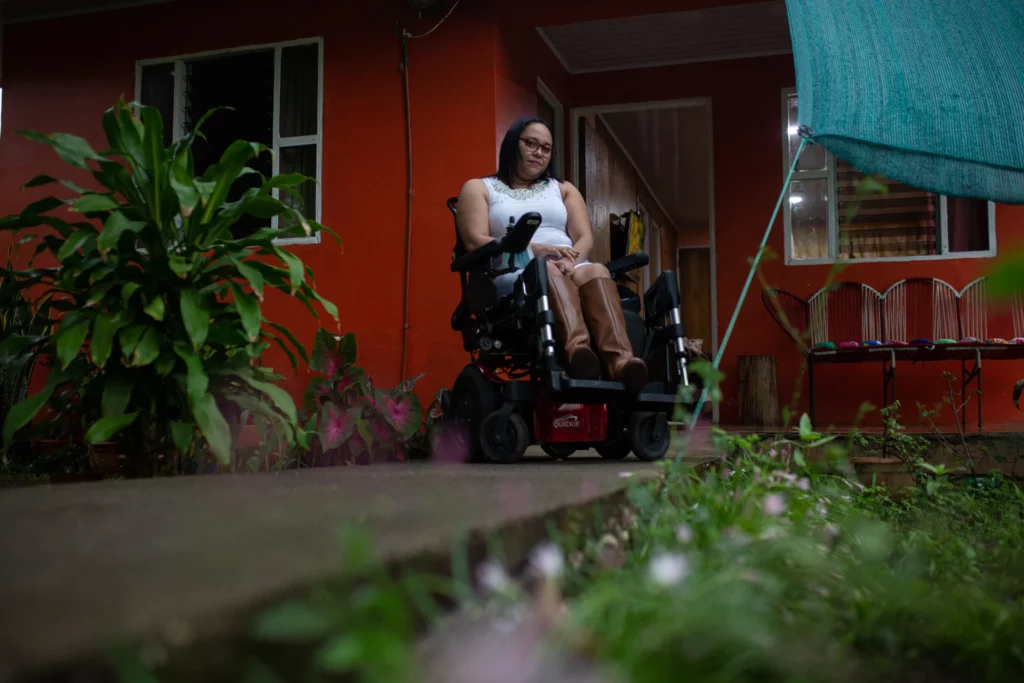
“It’s hard for someone who has a disability to acquire a support [device]. Just four years ago, the National Resource Center for Inclusive Education (Spanish acronym: CENAREC) donated to me the electric scooter that I have. From that date on is when I’ve had independence. I was 30 years old when that happened. Otherwise, I’d still be sitting there on the porch watching people go by.” Magaly ObandoPhoto: César Arroyo Castro
Uphill Battle for Accessibility
From the time she was three years old, her mobility began to decline, Magaly recalls. When she was 12 years old, her parents took her everywhere on a bicycle. It was the only way to leave her house because they didn’t have the financial means to buy a wheelchair.
According to Nicole Mesén, human rights activist and municipal council member in the Municipality of Goicoechea, by taxing these products, the previous figures would increase.
“A support product is not cheap and, by putting a tax on it, well, the more difficult it will be to have access,” she explains.
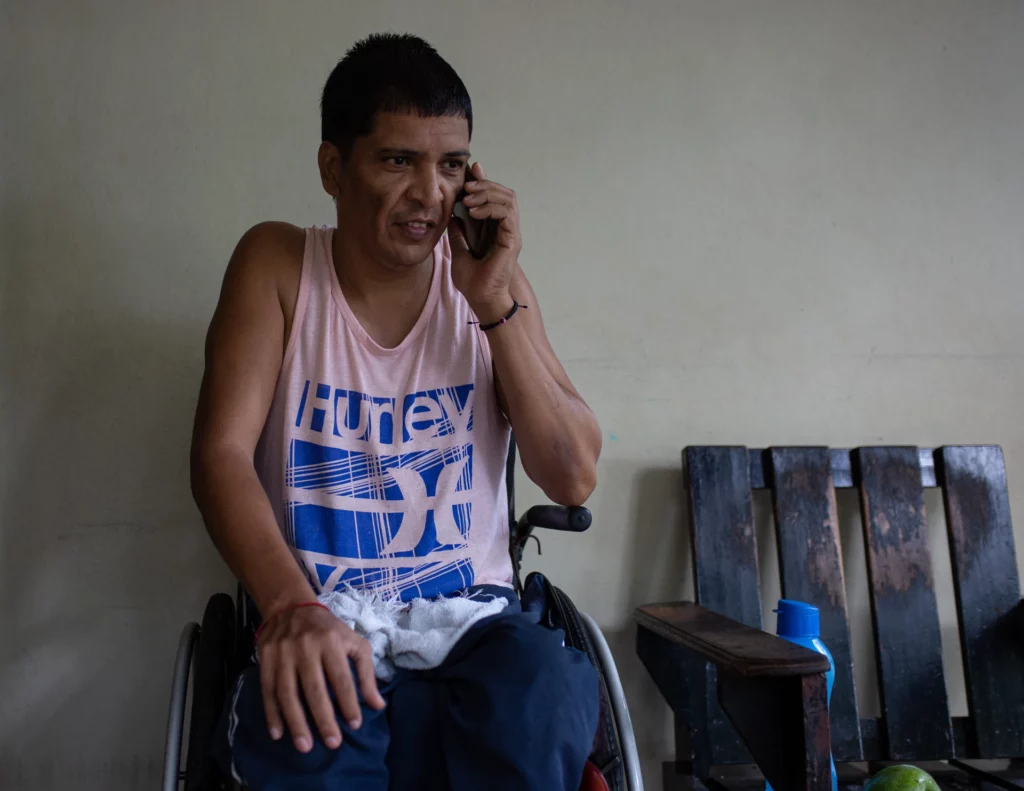
“Right now, I’m selling clothes. They gave me the chair about five years ago. It was donated to me by CENARE (National Rehabilitation Center) and it cost ¢1,700,000 ($3,080). If I had to pay for it, I’d be in another chair, not in this one. I had to buy the cushion. It cost me ¢395,000 (about $715). Now I have to buy the back support that costs half a million (about $900). I also have to buy the little front wheel, which is worth ¢65,000 (about $120). The chair is one’s life. If one thing gets messed up on the chair, it’s like something is messed up in oneself.” Erick ObandoPhoto: César Arroyo Castro
Magaly remembers that in 2019, she had to change the battery on the scooter she uses to get around. She also needed splints, a walker and orthopedic shoes. She and her family had to organize a horseback parade to raise the money.
“I have a pension from Social Security that is ¢82,000 (about $150). If I start saving to buy a chair, we don’t eat. I feel that the proposal that there is from this government doesn’t fit with reality,” emphasizes Magaly.
ENADIS data also indicates that more than half of the disabled population is in a situation of poverty. Activist Nicole Mesén criticizes that this isn’t due to the fact that disability itself generates poverty; rather it is a consequence of all the social barriers they face.
“When I leave my house and the sidewalk is in bad shape, or I can’t get on a bus because it’s not accessible, or I can’t get a job because there is discrimination against hiring a person with a disability… These are the barriers that people with disabilities experience. It’s not that I was born with a disability and poor, no. It’s that the system led me to poverty,” explains Nicole.
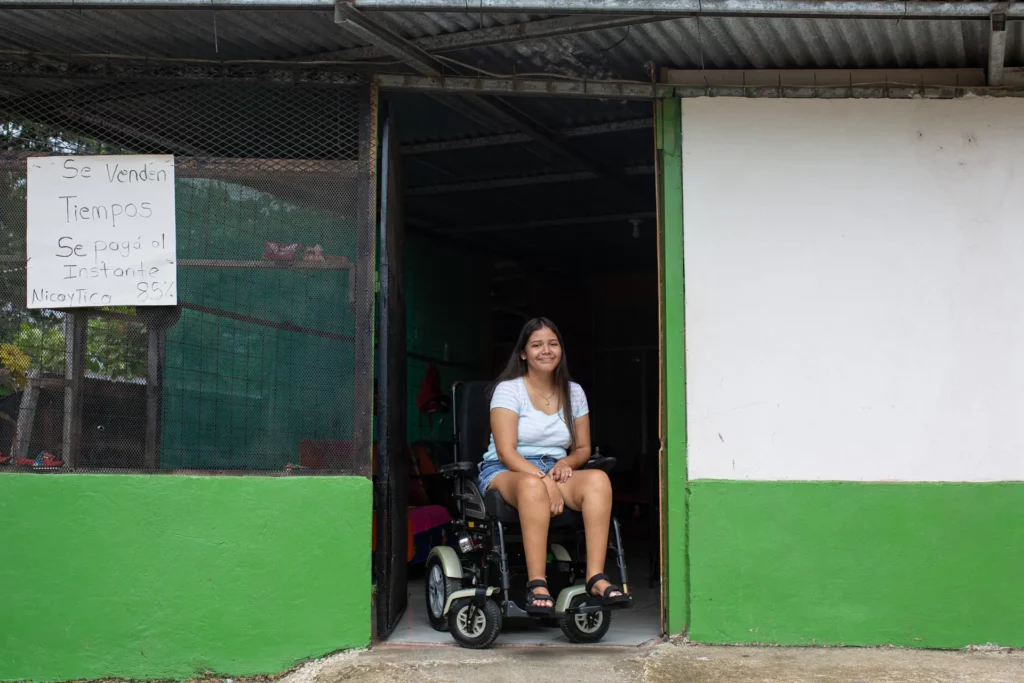
“A little while ago, my batteries were damaged so I had to pay ¢450,000 ($815), and just for them to come and check [the chair], a consultation costs ¢50,000 ($90). Right now, I’m just taking classes and things like that. I live with my mom and three brothers. Only my mother works, cleaning houses. She earns perhaps between ¢25,000 and ¢30,000 ($45 to $55) a week. Here job opportunities for people with disabilities are very limited. I feel qualified to work but I haven’t sent in resumes because the truth is that I’m afraid that they’re going to reject me. I would like to contribute to my household and help my mom”. María del Sol SequeiraPhoto: César Arroyo Castro
Rural Life, One More Barrier
“Today I became unemployed. Today they fired me,” says Magaly, with a laugh that hides some frustration. The company she worked for decided not to renew her contract, so now she plans to study again and continue with her position as council member in the Municipality of Nicoya.
“I’d like to finish projects that I have, continue in the fight for one’s rights. Within [the municipality], it’s a little more flexible to be listened to, for things to get done. From the outside, it’s much more difficult,” says Magaly.
Nicole and Magaly agree that in provinces like Guanacaste, it’s harder to exercise the rights of people with disabilities.
“Mobility for a person with a disability in rural areas is very difficult. Many times in the educational centers, they aren’t given support or don’t have the same resources that a [Greater Metropolitan Area] educational center has. There are fewer chances of getting a job,” explains Nicole.
According to the ENADIS survey, in rural areas, almost 57% of people with disabilities are concentrated in the first two-fifths of the population, that is to say, households with the lowest incomes. That’s four percentage points more than at the national level (53%) and five more than in urban areas (52%).
Nicole believes that if the government wants to levy taxes on assistive devices, they should first attack underlying problems such as lack of opportunities.
“If they really want us to pay taxes, then they should improve employment for people with disabilities, because without a job and without money, well, it is going to be very difficult to pay taxes,” she affirms.
Although the approval of this tax would affect people with disabilities in general, Nicole believes that the most affected would be the middle class who don’t qualify for aid from state institutions, who “have to buy their assistive devices no matter what.”
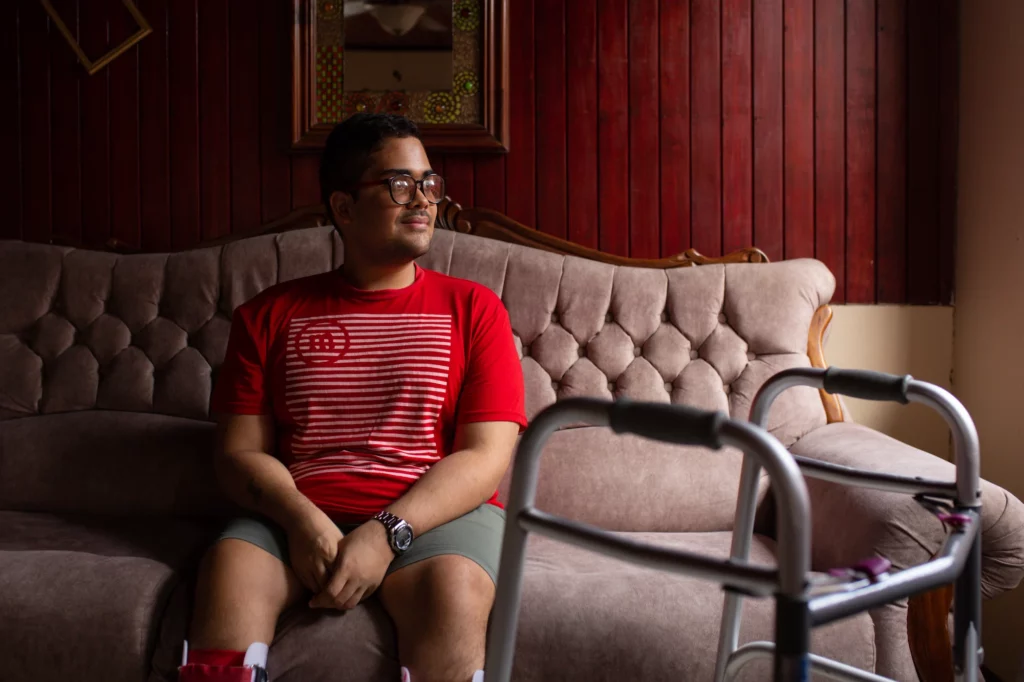
“I think it’s wrong to make them more expensive when you can’t pay that amount of money for a wheelchair, for crutches or a walker. You can’t.” José Andrés ZumbadoPhoto: César Arroyo Castro
The activist affirms that the disabled population was never taken into account when proposing the bill. That’s why the National Movement of Persons with Disabilities has already talked with legislators so that they vote against the bill. Some of them have already spoken out against it.
“Here there is a big problem at the national level and that is where all the powers of the Republic come in. They always make decisions without the people. The people are already organized, the people are there, just waiting to be taken into account,” she points out.
Reporter’s note: This article was edited on 6/22 to specify the percentage of people with disabilities who require a product, service or assistance animal, but do not have one.


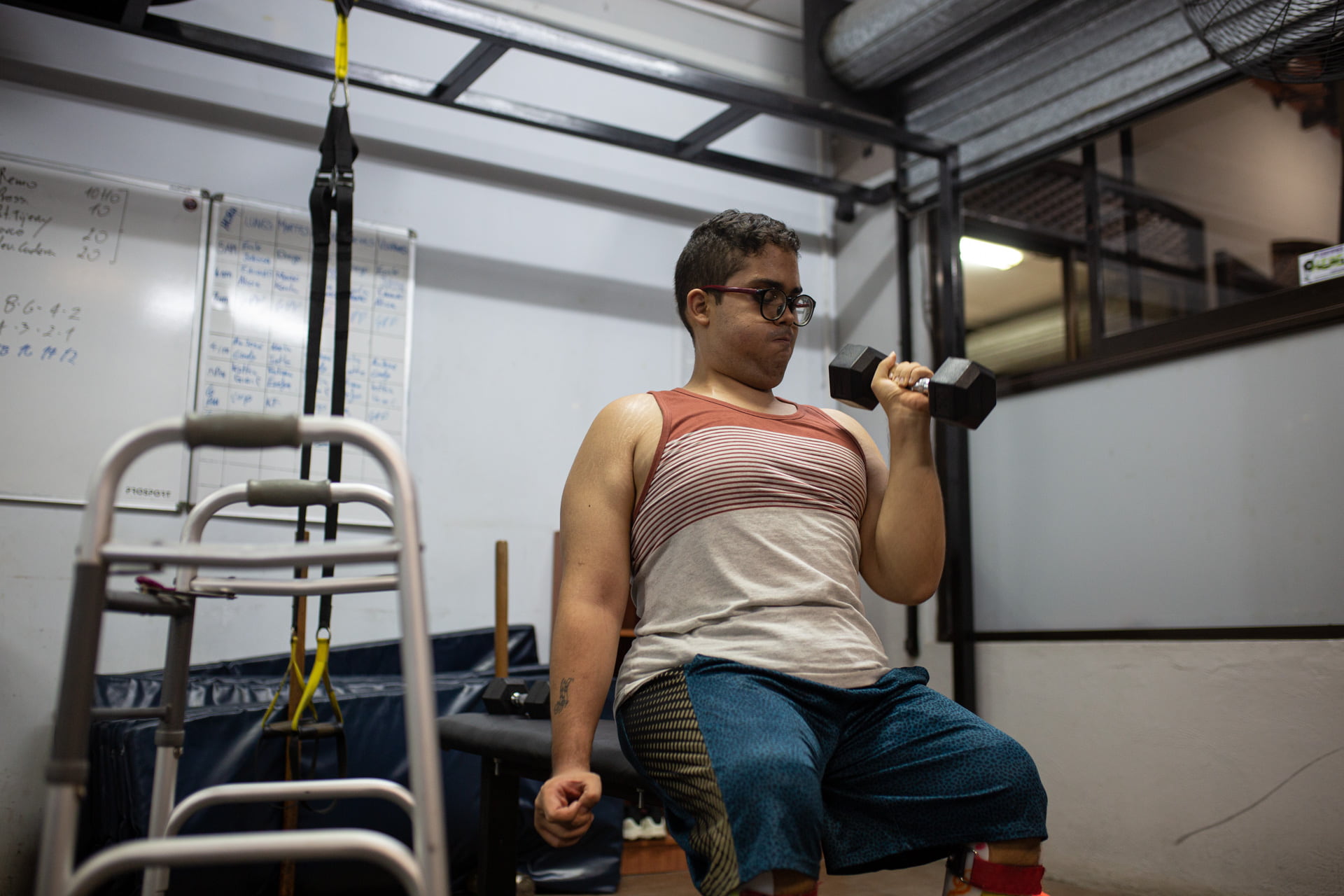
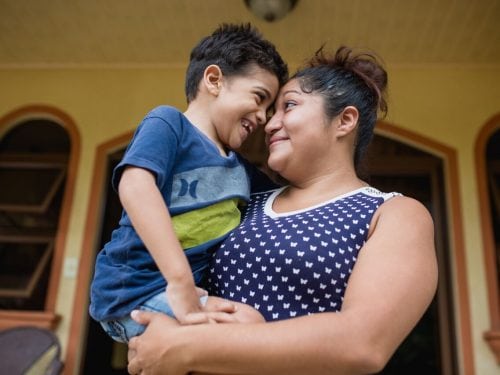
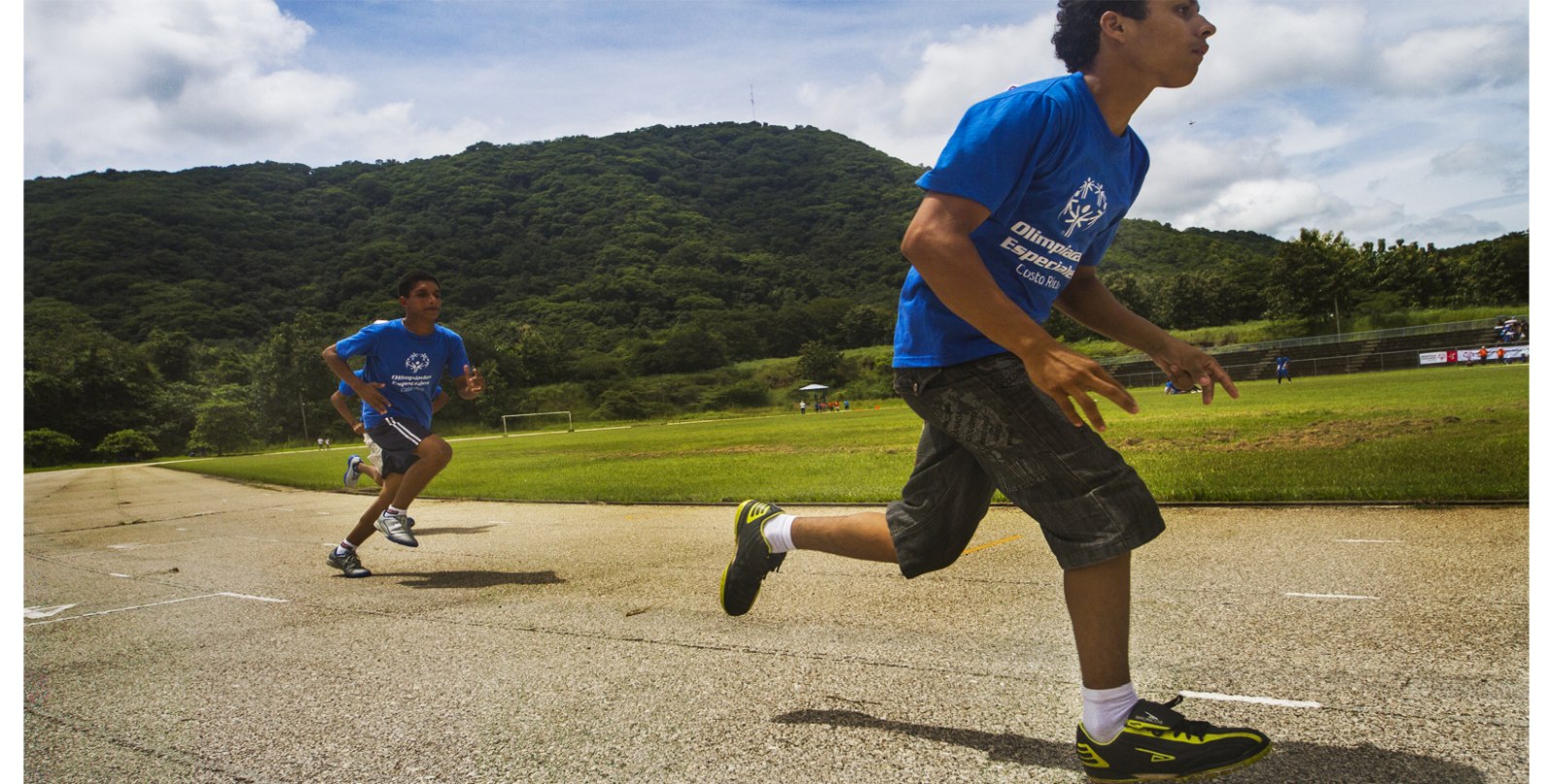
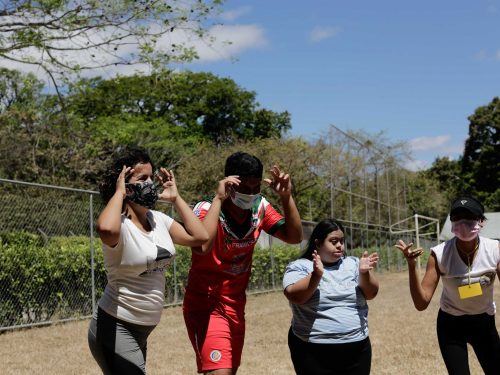

Comments